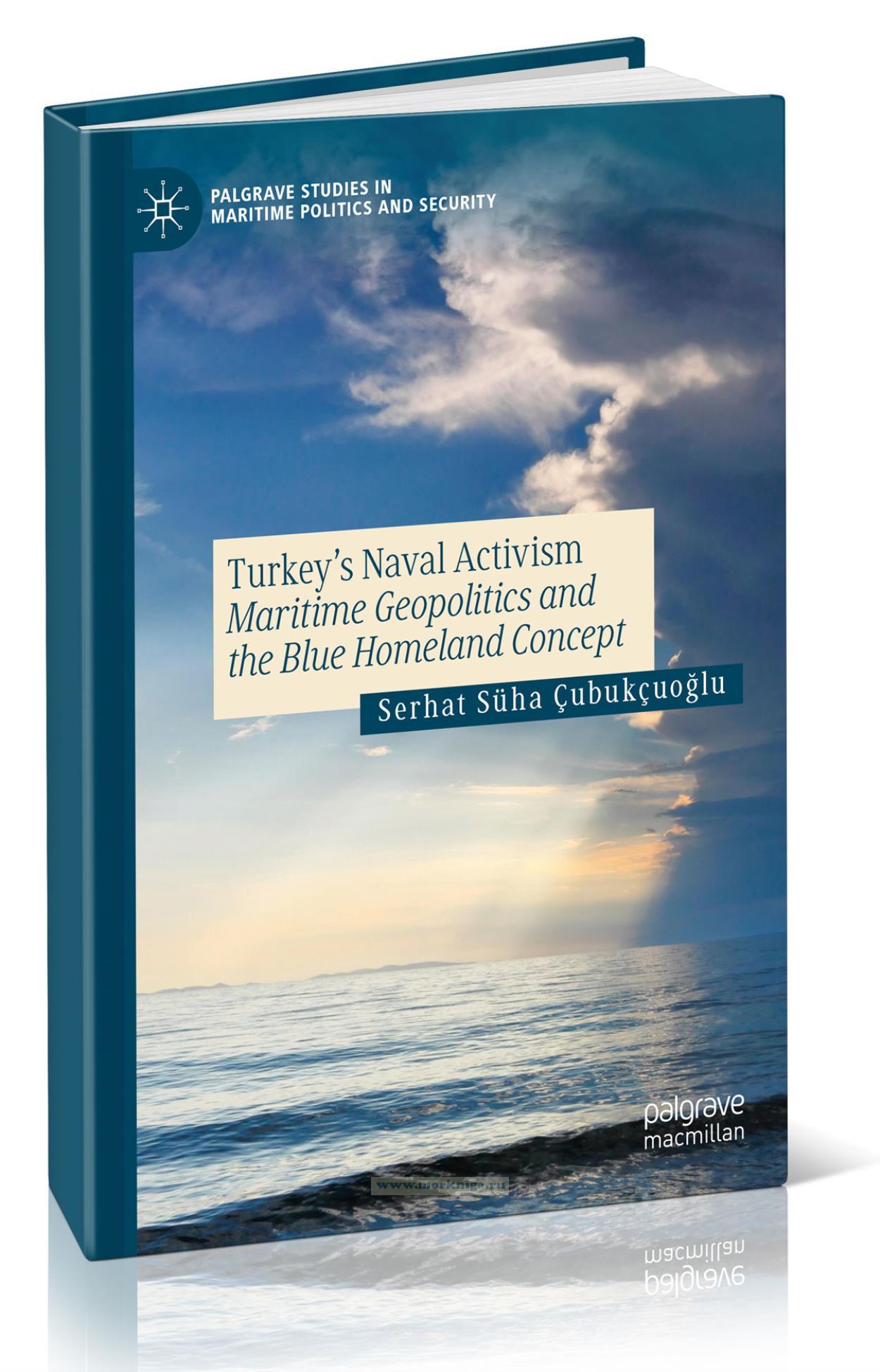Turkey’s Naval Activism. Maritime Geopolitics and the Blue Homeland Concept
Книга на английском языке
This book explores the significance of Turkey’s Blue Homeland (Mavi Vatan) naval concept through the lens of neoclassical realism by investigating the impact of geopolitics and domestic political factors on foreign policy outcomes. It uncovers motivations behind the policy change between 2004 and 2023 with a particular focus on the last seven years, the period when Turkey’s naval assertiveness reached its peak following the failed coup attempt in 2016. The argument highlights that Blue Homeland is an extension of Turkey’s national self-conception embodied in the Vatan concept; it is the manifestation of a traditional land power claiming its place as an emergent maritime power. The Justice and Development Party (AKP) government led by President Recep Tayyip Erdogan has reinforced an activist maritime policy since 2016 due to pressures of regional insecurity, domestic coalition logrolling, and nationalist sentiment.
As opposed to arguments for purely offensive motives or identity projection, the holistic analysis of structural factors, systemic stimuli, and the domestic political context in this book provides a more nuanced and compelling account of Turkey’s policy trajectory. Intense foreign pressure, changes in relative distribution of power, and greater immediacy to act form the base line of external factors. These factors are moderated by an assertive, realpolitik strategic culture, an authoritarian government, and stronger nationalist sentiment that culminated in a policy re-orientation toward securitization. The quest for maritime control is a key pillar of this approach for defending vital interests from afar and projecting power to the near abroad. In the outcome, geopolitical shifts and the AKP’s nationalist turn changed Turkey’s threat perception, gave a political dimension to Blue Homeland, and brought it into a central place in Turkish politics after 2016. Despite the political reshuffle and rhetorical descent since 2021, Blue Homeland has a powerful socialized definition and a popular appeal across the political spectrum that positions it as a viable long-term strategy. Heightened geopolitical tensions between Turkey and Greece in 2022, even at the height of an economic crisis, were a testament to the enduring nature of this concept.
Contents
1 Introduction
The Approach: A Neoclassical Realist Paradigm
The General Argument
Outline
References
Part I Maritime Geopolitics and Turkey’s Interest in Naval Development
2 Global Maritime Powers and Turkey’s Blue Homeland Concept
Development of Global Naval Powers
Turkish Foreign Policy, Maritime Geopolitics, and Naval Modernization
Strategic Perspectives on Turkish Maritime Policy
Critical Arguments About Blue Homeland’s Emergence and Influence
Regional Geopolitics and Views of Turkey’s Blue Homeland
Concept
References
3 The Modern Origins of Turkey’s Blue Homeland Concept
Fall of the Ottoman Empire and Ataturk’s Maritime Policy in Early Republican Years
Ataturk's Interest in the Maritime Domain and Kemalist Strategic Culture
The Montreux Convention in 1936 and Ataturk's Multilateral Diplomacy
Turkish Maritime Policy During the Early Cold War Years Turkish Foreign Policy Toward Cyprus and Greece in the 1960s and 1970s
References
4 Turkey’s Maritime Crises and Naval Development
Law of the Sea and Turkey's Maritime Disputes Since the 1970s
1973, 1987 Aegean Crises and First Signs of Blue Homeland Turkey's Two-and-a-Half Wars Doctrine After the End of the Cold War
Kardak/Imia Crisis in 1996 and the Issue of “Grey Zones” in the Aegean Sea
Kemalist Strategic Culture and the “Towards Blue Waters” Naval Strategy
9/11 Terrorist Attacks, The New World Order, and Turkey's Strategic Re-Orientation
References
Part II Evolution of Turkey’s Naval Activism
5 Liberalization and the EU Journey: 2004-2010
De-securitization and Liberalism in Turkish Strategic Culture during the AKP Era
Rapprochement with Greece and the RoC in the Context of Turkey-EU Relations
Maritime Zones around Cyprus, the Seville Map, and the Emergence of Blue Homeland
Trade Expansion, Economic Power, and Naval Strategy under the AKP's First Decade
The “One Minute” Incident, the “Mavi Marmara” Incident, and the Rift with Israel
Power Struggle in Domestic Politics and First Cracks between the AKP and Gulenists
References
6 Identity Projection and Axis Shift Toward the Middle East: 2010-2016
Arab Uprisings and the AKP’s Identity Projection in Crisis
Energy Geopolitics, Naval Policy, and Multilateral Diplomacy in the Mediterranean
The Eastern Mediterranean Energy Partnership and Defense Alliance Against Turkey
Domestic Power Struggle and the AKP’s Fallout with Gulenists
The AKP-MHP Coalition and the Paradigm Shift Toward Securitization
References
7 Re-Securitization and the Emergence of Blue Homeland: 2016-2020
US-Turkey Relations and Turkey’s Post-Coup Foreign Policy Re-Orientation
State-Society Relations and the Logrolled Domestic Coalition in the Post-Coup Period
Institutional Arrangements, Strategic Culture, and the Defense Industry
Turkey’s Naval Strategy and Blue Homeland’s Ascendence After 2016
Regional Threat Perception and Defense Cooperation
References
Part III De-Prioritization of Naval Activism in Turkish Foreign Policy
8 Foreign Policy Realignment and Softening of the “Blue Homeland” Narrative: 2020-2023
References
9 Conclusion: A Final Word on Turkish Foreign Policy and the Blue Homeland Concept
Appendix
Index

